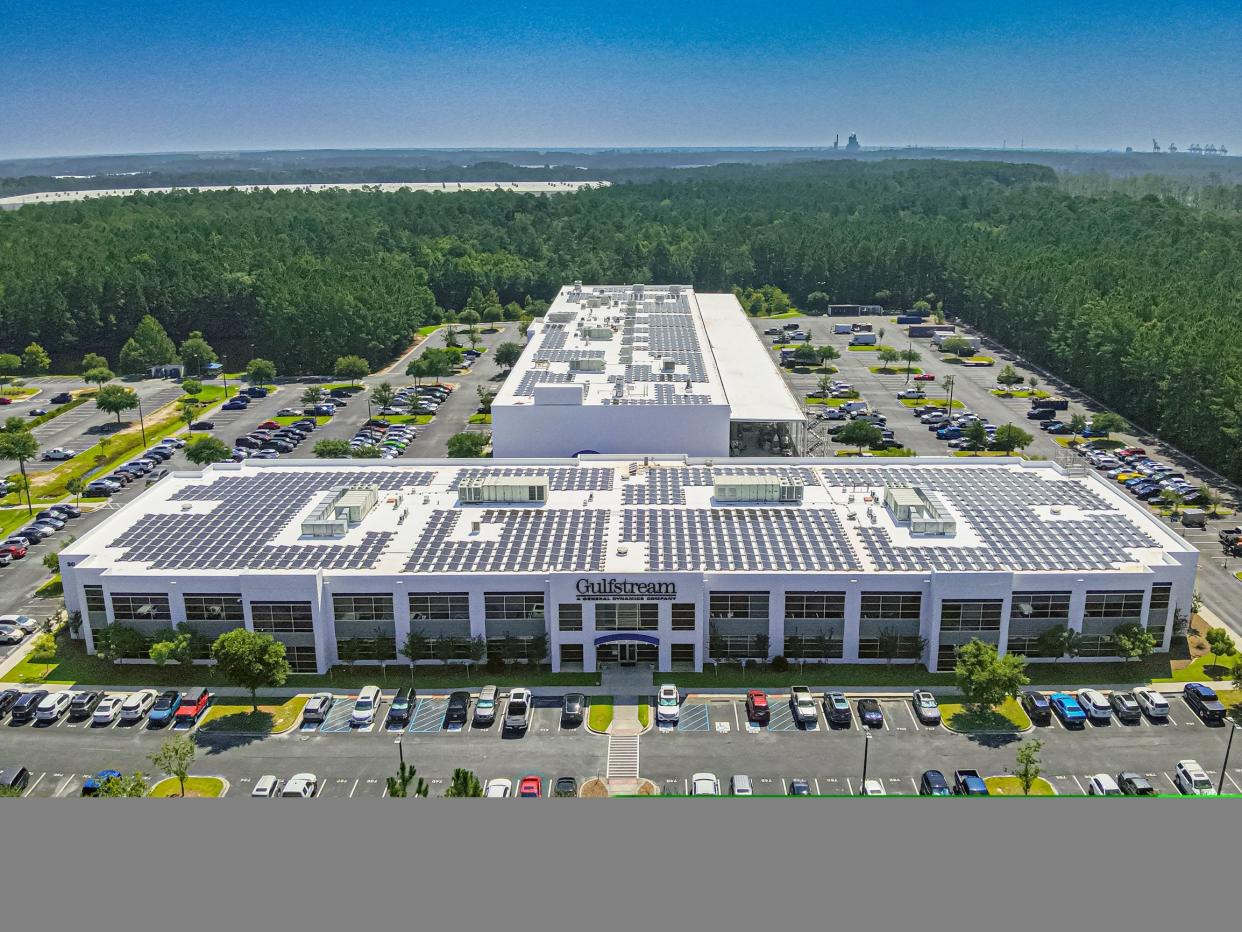Gulfstream looks to sun to power Savannah research campus

Gulfstream Aerospace Corp. plans to use on-site solar panels to supply one-quarter of the electricity for its Savannah Research and Development Campus near the Savannah-Hilton Head International Airport.
The rooftop systems are operational on four campus buildings and will go online at a fifth facility next year, said Rexford Ofosu, Gulfstream’s corporate sustainability manager.
The existing panels, installed by Atlanta-based Cherry Street Energy, have a combined value of nearly $1.8 million, according to permits issued by the City of Savannah.
When fully functional, the systems are projected to produce 5 million kilowatt hours of electricity annually. That’s enough to power more than 470 typical U.S. homes for a year.
“Sourcing carbon-free electricity is a central element of Gulfstream’s sustainability plan,” Ofosu said.
Savannah-based Gulfstream – which specializes in high-end jets for companies, plane-sharing services such as NetJets, and high-wealth individuals – has committed to reaching “net-zero” status for climate-impacting emissions by 2050.
To reach that goal, Gulfstream also is investing in renewable energy credits that the company employs to virtually offset a proportional amount of its own emissions. That’s done by buying the rights for clean electricity generated and used elsewhere.
A First: Gulfstream beats Virgin Atlantic to historic 'sustainable' overseas flight
Aviation Growth: Gulfstream heralds opening of 142,000-square-foot manufacturing facility in Savannah
A future with sustainable flight
Gulfstream’s parent company, General Dynamics, also has established an interim target of reducing carbon emissions 40% by 2034, based on 2019 levels.
While Gulfstream’s companywide facility footprint has grown by more than 30% since 2014, carbon emissions have declined 18%, the company says.
However, the Gulfstream’s most significant climate impact is indirect and mostly out of its control – from the exhaust of jets in the skies after they leave the manufacturing facility near Savannah-Hilton Head International Airport.
But Gulfstream has been involved in efforts to decarbonize flight.
Last month, the company completed the world's first trans-Atlantic flight using 100% "sustainable" fuel produced by refining vegetable oils, waste oils and fats.
“One of the keys to reaching business aviation’s long-term decarbonization goals is the broad use of (sustainable aviation fuel) in place of fossil-based jet fuel,” Gulfstream President Mark Burns said in a the announcement of the accomplishment. “The completion of this world-class flight helps to advance business aviation’s overarching sustainability mission and create positive environmental impacts for future generations.”
The Gulfstream 600 made the seven-hour trip from Savannah to London a little more than a week ahead of a scheduled Virgin Atlantic flight that the British company predicted would achieve the milestone.
When questioned by the Savannah Morning News, Virgin Atlantic conceded that it would complete the first “commercial” flight using all sustainable fuel. The crossing from London Heathrow to New York’s John F. Kennedy Airport was completed Nov. 28.
Gulfstream says its own corporate jet fleet has completed more than 2 million nautical miles on sustainable aviation fuel blends.
John Deem covers climate change and the environment in Coastal Georgia. He can be reached at jdeem@gannett.com.
This article originally appeared on Savannah Morning News: Solar panels to help power Gulfstream's Savannah research campus

